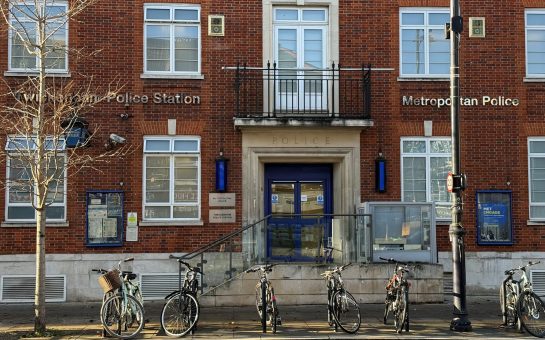Language schools across London are struggling to obtain funding for English classes for Ukrainian refugees despite Government and council promises to provide financial support.
English to Speakers of Other Languages, known commonly as ESOL, provides non-native speakers with English lessons and qualifications, helping migrants fully integrate and settle in the UK.
The Government’s Homes For Ukraine welcome pack states that ESOL classes for adults over the age of 19 would be Government funded or co-funded.
As well as this, London Councils such as Brent and Lambeth have published statements pledging to support ESOL classes.
Yet, nearly two months on since the launch of the Homes for Ukraine scheme, language schools have found specific ESOL funding for Ukrainians hard to come by.
English for Action (EFA), a charity which provides ESOL provision for migrants across London, claimed no funding has yet been forthcoming, despite Government promises and informal conversations with local councils.
Stephanie Habib, Project Development Manager at EFA said: “This expectation was reinforced by the announcement of the £10,500 stipend that would be paid to local councils for each person arriving under the Homes for Ukraine scheme to support their integration.
“With promises of ESOL come the expectation that this ESOL will be funded through additional budget allocation, especially when ESOL providers in London are already notoriously stretched and under-resourced.
“Still, on our side we aren’t seeing dedicated funding being made available so that we community organisations can step in to help Ukrainians arriving.”
Despite receiving no dedicated funding, EFA are being contacted by newly arrived Ukrainian refugees asking if they can attend classes.
With capacity and funding stretched, EFA have had to place prospective students from Ukraine on a waiting list or refer them to other organisations.
Long-term under-resourcing of ESOL provision has also limited EFA’s ability to find students who would benefit from classes.
Since the 2017 #LoveESOL campaign the charity have lobbied the Greater London Authority to create a centralised database that aggregates all London-based ESOL providers.
Habib added: “The sudden arrival of refugees from Ukraine and Afghanistan before them reinforces the need for investment in a tool like this, as they would be able to visit just one website to find all of the available ESOL providers in their area.
“It would speed up the process of starting English classes and ultimately would accelerate social integration.”
Lack of central and local government support for ESOL classes for Ukrainian refugees despite promises has also be seen in Surrey.
Until last week, Weybridge International School of English (WISE) was running ESOL classes for 32 registered Ukrainian refugees without any Government funding.
Following weeks of delay, Surrey County Council committed to provide a one-off £3,000 grant to WISE for ESOL classes for Ukrainians.
Through Surrey Adult Learning, Surrey County Council are currently providing online ESOL lessons for Ukrainians, but are not offering face-to-face lessons until September at the earliest.
Liz Denham, Managing Director at WISE, said, “It has been quite difficult to get any funding but through sheer persistency I have managed to secure a grant from the council.
“There is a high demand for Ukrainian refugees to learn English, a lot of them need to find work.
“Online provision is great but people need face to face classes now. They have just arrived from Ukraine and are quite traumatised.
“They need to come to a place where they actually physically meet people and learn English.”
Featured image credit: Number 10 Downing Street via Flickr under CC BY-NC-ND 2.0 license





